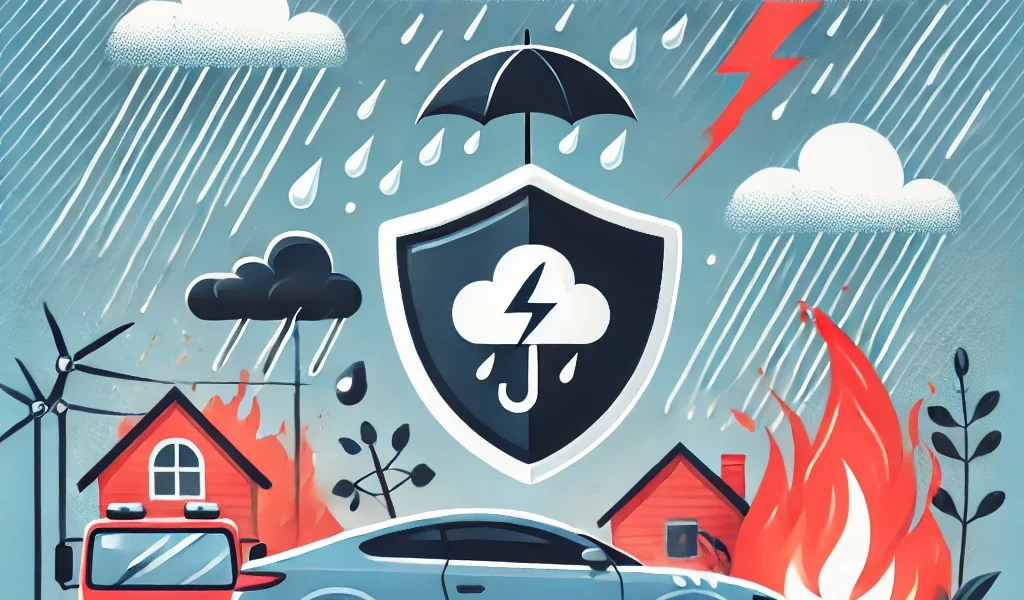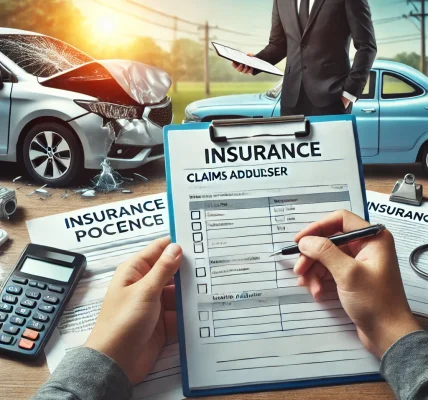Weather and natural disasters can cause significant damage to vehicles, leaving car owners wondering whether their insurance policy will cover the losses. From floods and hailstorms to hurricanes and wildfires, understanding how different weather conditions impact your car insurance coverage is crucial for financial protection.
In this comprehensive guide, we will explore how various weather-related events can affect your car insurance policy, what type of coverage is required to protect against such damages, and steps you can take to minimize risks.
Understanding Car Insurance Coverage for Weather-Related Damage
1. Comprehensive Coverage: The Key to Protection
Comprehensive car insurance covers damages caused by weather-related events and natural disasters. This includes:
- Floods and heavy rain damage
- Hailstorms and falling objects
- Hurricanes, tornadoes, and strong winds
- Wildfires and extreme heat
- Earthquakes and landslides (depending on policy terms)
If you only have liability or collision coverage, weather-related damage may not be covered. Therefore, opting for comprehensive coverage is essential if you live in an area prone to extreme weather conditions.
2. Liability & Collision Insurance: Limited Protection
- Liability Insurance: Covers damages you cause to other vehicles or property but does not cover damage to your own car from weather events.
- Collision Insurance: Covers damage to your vehicle in case of an accident, but does not protect against natural disasters like floods or hailstorms.
How Different Weather Conditions Affect Your Car Insurance Policy
1. Floods & Heavy Rain Damage
Flooding is one of the most common weather-related disasters, and it can cause severe damage to your car’s engine, electrical system, and interior.
- Covered by: Comprehensive insurance.
- Not covered by: Basic liability or collision insurance.
- Prevention Tip: Park in an elevated area or garage when heavy rain is expected.
2. Hailstorms & Falling Objects
Hail can cause dents, cracked windshields, and broken windows.
- Covered by: Comprehensive insurance.
- Prevention Tip: Use a car cover or park in a covered area during hailstorm warnings.
3. Hurricanes, Tornadoes & Strong Winds
High winds can send debris flying, causing damage to your car.
- Covered by: Comprehensive insurance.
- Prevention Tip: Secure your vehicle in a garage or indoor parking facility before a storm.
4. Wildfires & Extreme Heat
Intense heat and wildfires can destroy cars entirely or damage paint, tires, and interiors.
- Covered by: Comprehensive insurance.
- Prevention Tip: Park in shaded areas and avoid driving in wildfire-prone regions during dry seasons.
5. Earthquakes & Landslides
Earthquakes can lead to falling debris, landslides, and road collapses that damage vehicles.
- Covered by: Some comprehensive policies (Check with your insurer).
- Prevention Tip: Avoid parking near unstable structures or slopes.
Does Weather Damage Affect Your Car Insurance Premium?
1. Location-Based Premium Adjustments
If you live in an area prone to severe weather, insurers may charge higher premiums due to increased risk.
2. Frequent Claims Can Increase Rates
Filing multiple claims for weather-related damages may result in higher premiums.
3. Deductible Considerations
Your deductible is the amount you must pay before insurance kicks in. Choosing a higher deductible can lower your premium but means paying more out of pocket for weather-related damages.
Steps to Minimize Weather-Related Risks
1. Choose the Right Coverage
Ensure your policy includes comprehensive coverage to protect against natural disasters.
2. Park Smartly
- Use garages or covered parking to shield your car from hail, storms, and extreme heat.
- Avoid parking under weak trees or structures.
3. Stay Updated on Weather Alerts
Sign up for weather alerts to take precautions in advance.
4. Regular Maintenance
- Check tires and brakes for safety during extreme weather.
- Seal windows and doors to prevent water entry during floods.
5. Consider Additional Policy Add-Ons
- Roadside Assistance: Helpful during extreme weather breakdowns.
- Rental Car Reimbursement: Covers transportation costs if your car is damaged and needs repairs.
Final Thoughts
Weather-related events and natural disasters can cause unexpected damage to your vehicle, making it essential to have the right insurance coverage. Comprehensive insurance is the best option to protect against weather-related damages, and taking preventive measures can help reduce risks.
If you live in an area prone to floods, hurricanes, or wildfires, reviewing your car insurance policy and ensuring adequate coverage is a smart move to safeguard your vehicle and finances.
🚗🌪️ Stay protected and plan ahead to keep your car safe in any weather condition!


